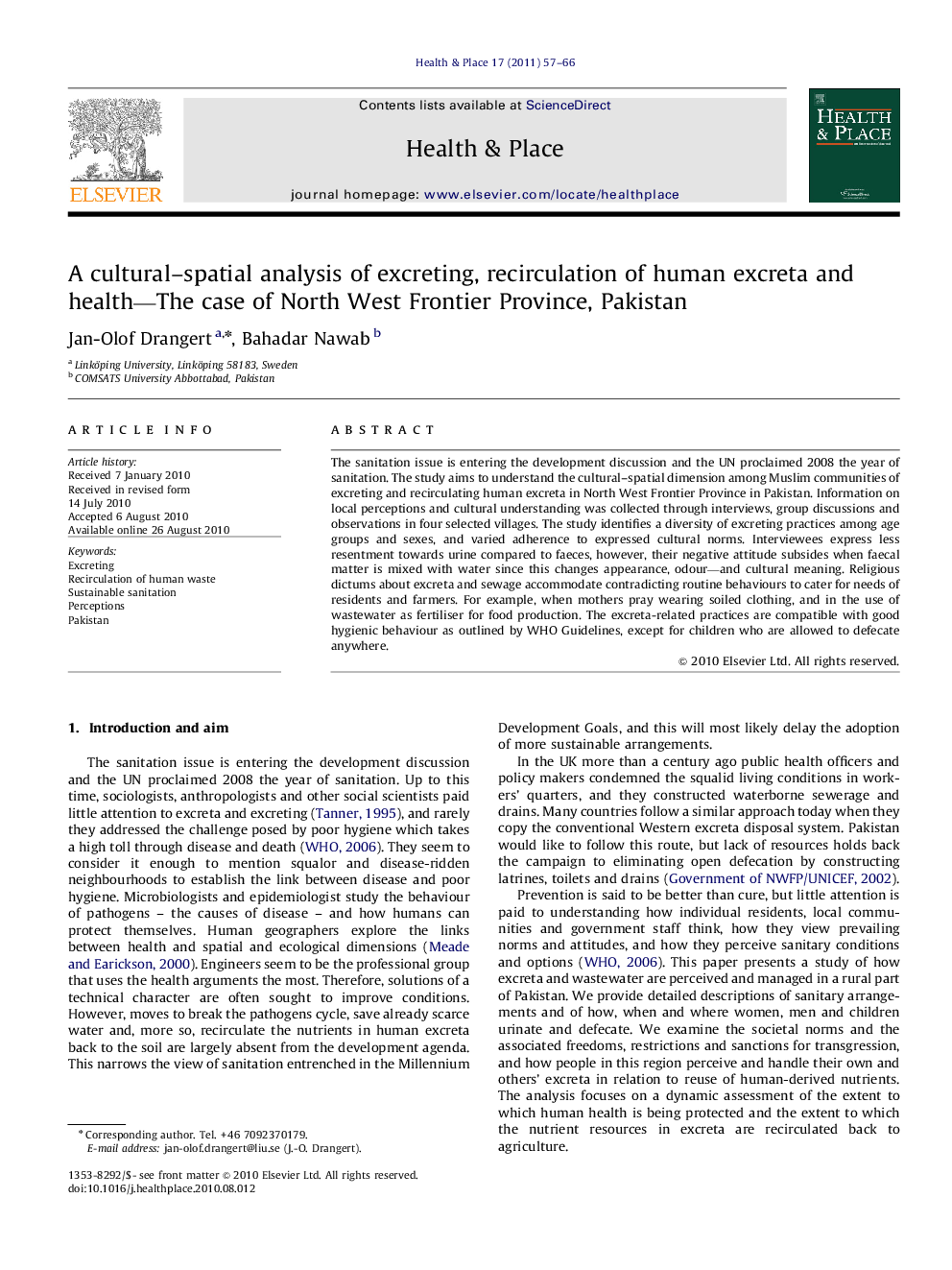| Article ID | Journal | Published Year | Pages | File Type |
|---|---|---|---|---|
| 10502829 | Health & Place | 2011 | 10 Pages |
Abstract
The sanitation issue is entering the development discussion and the UN proclaimed 2008 the year of sanitation. The study aims to understand the cultural-spatial dimension among Muslim communities of excreting and recirculating human excreta in North West Frontier Province in Pakistan. Information on local perceptions and cultural understanding was collected through interviews, group discussions and observations in four selected villages. The study identifies a diversity of excreting practices among age groups and sexes, and varied adherence to expressed cultural norms. Interviewees express less resentment towards urine compared to faeces, however, their negative attitude subsides when faecal matter is mixed with water since this changes appearance, odour-and cultural meaning. Religious dictums about excreta and sewage accommodate contradicting routine behaviours to cater for needs of residents and farmers. For example, when mothers pray wearing soiled clothing, and in the use of wastewater as fertiliser for food production. The excreta-related practices are compatible with good hygienic behaviour as outlined by WHO Guidelines, except for children who are allowed to defecate anywhere.
Related Topics
Health Sciences
Medicine and Dentistry
Public Health and Health Policy
Authors
Jan-Olof Drangert, Bahadar Nawab,
